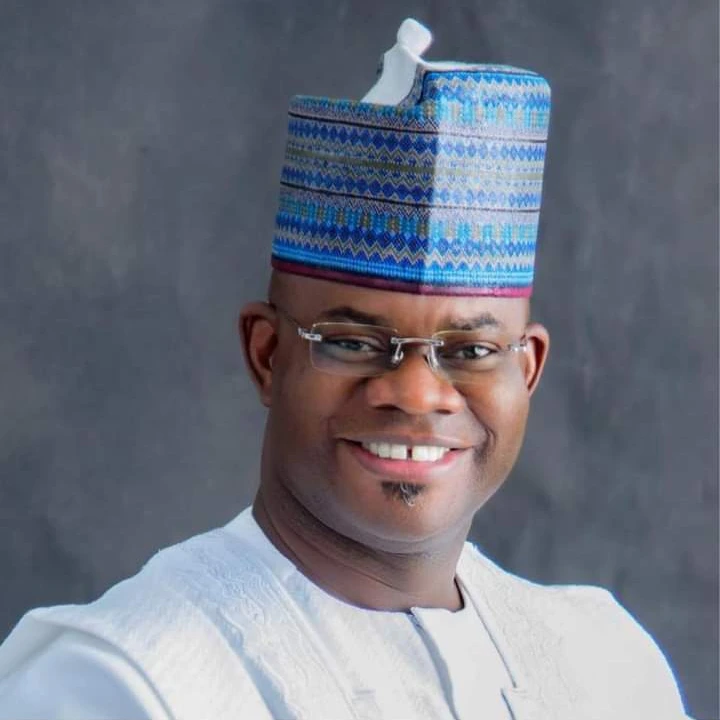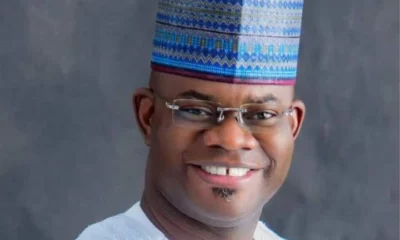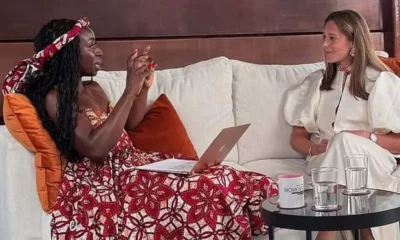News
WINET moves to end child, forced marriages in Ebenebe Community in Anambra State


BY: Sandra Ani
Women Information Network, an Enugu based Non-Governmental Organization, recently consolidated its campaign targeted at ending community acceptance of child and forced marriages in Ebenebe community in Awka North Local Government Area of Anambra State.
The one -year project is a product of a baseline survey carried out by WINET in 2016 to determine the veracity of the information within its disposal that Ebenebe was among the communities endemic with child marriage.
The baseline survey did not only reveal the truth but also disclosed the many factors responsible for this, top among which was the cultural practice called “Tum, Num”, a tradition which compels a man or boy who impregnates a girl to marry her, regardless of age.


This was identified as being in violation of the provisions of the Anambra State Child Rights Law 2006, which prohibits child marriage and betrothal among other protective provisions, put together in the overall interest of the child.
WINET had earlier organized separate dialogues with the men, the women, the male and female youths of the community to teach them the provisions of the Child Rights Law, CRL of Anambra State of 2006, which many of them had contravened ignorantly.
A town hall meeting was also organized recently for all the segments of the community already trained to advance the course of the campaign, which has as its title “The Right to be a Girl”.
Addressing the gathering, the Executive Director of WINET, Mrs. Miriam Menkiti, appreciated the measure of support the organization had enjoyed from the locals since the commencement of the campaign.
Represented by Mr. Nnadozie Oshigbo, the WINET Executive Director re-echoed the essence of the project, funded by a Spanish Non- Government Organization, Mundo Cooperante, which is to abolish the practice of “Tum, Num” in Ebenebe, as it undermines the dignity of the teenage girls, who most often are forced into marriage, even against their interest and consent.
She explained that the campaign is not to undermine the culture and tradition of the people but to help the society to catch up with the realities of the time.
Mrs. Menkiti charged the people of the community to work together to abolish the traditional practice of “Tum, Num”, which derails especially the young girls from pursuing and fulfilling their dreams and ambitions in life.
The WINET Executive Director pointed out that the event was to validate all the commitments made by various gender groups during previous dialogues.
She further explained: “The overall goal of the project is to end community acceptance and practice of girl child and forced marriages in Ebenebe. The practice of Tum, Num whereby some girls under eighteen years are given out in marriage or forced into marriage is prohibited by Anambra State Child Rights Law 2006. At the end of each of the dialogues, the girls, male youths, women and men agreed on some of the practices that the Anambra State Child Rights Law prohibit. Today, all of you as community members have gathered to validate those things you agreed on during the dialogues to confirm that your community will no longer encourage girl child and forced marriages”
The Legal Consultant to WINET, a former Solicitor General and former Chairperson, International Federation of Women Lawyers, FIDA in Anambra State, Barrister Mrs. Tina Emekekwue, explained to the people that every child has rights and obligations under the constitution of Nigeria, especially under the Child Rights Law, CRL, and such rights must be respected.
She enumerated the rights to include: the right to freedom of thought, conscience and religion, which forbids parents from imposing their will and choices on their daughters especially the teenage ones.
She further explained:
“The right to dignity of the child says nothing should be done to affect the dignity of the child negatively. Rather, help him or her to be somebody in life, who you can proudly call your child. Every child is free from any discrimination no matter the circumstances of birth. Whether given birth to in the house of the father of the girl or abducted or otherwise. A child has right to education, freedom of association, right to private and family life, right to survival and development. The child equally has right to dignity and should not be maltreated for any reason. Even the unborn child has right to be protected against harm, and none should encourage abortion as it is a contravention of the law. A child also has right to parental protection and maintenance. Also, a girl child is forbidden from Female Genital Mutilation, FGM”.


The President General of Ebenebe, Hon Paul Nnatuanya, who was represented by the Secretary, Mr. Charles Onyebuchi, extolled WINET for the campaign and appealed to everyone in attendance to spread the good news across the nooks and crannies of the community.
The President General also charged parents to stop at nothing in ensuring that their children grow to become useful to themselves, their families and the society at large.
The occasion featured question and answer session while the people again pledged their commitment to ending “tum num”, which fuels forced marriages among teenage girls.
With the momentum on display across gender divides in the community about the project, Tum, Num may soon lose its appeal and efficacy as the Anambra State Child Rights Law has made better provisions for the protection of the girl -child particularly those who are being coerced into marriage at their teenage ages.
News
Niger State Prisoners Run From Facility After Rainstorm Brings Down Part Of Fencing


Many prisoners serving time at the Suleja Correctional Centre, located in Suleja Local Government of Niger state, fled the facility after a rainstorm brought down a part of the inner fencing.
This incident happened as a result of the heavy rainfall which fell on Wednesday night. This led to a cell being torn down, providing incarcerated individuals with a chance at freedom.


Reporters gathered that security forces fired many shots in the air, attempting to scare the inmates out of hiding.


While the State Comptroller of Prisons declined to speak to the press, it has been noted that security has been beefed up on the Minna-Suleja and Suleja-Kaduna roads, including the Madalla axis to Abuja road, which is a likely escape route out of the state for the inmates.
News
EFCC: Former Governor Of Kogi State, Yahaya Bello Fails To Show Up In Court, Says He Is Scared Of Arrest


The embattled immediate past Governor of Kogi state, Yahaya Bello, says he would have appeared at the Federal High Court in Abuja to answer to the 19-count charge preferred against him by the Economic and Financial Crimes Commission, EFCC, but is afraid he would be arrested.
Though Bello was absent for his arraignment today April 23, His team of lawyers addressed the court on his behalf.
A member of his legal team, Adeola Adedipe, SAN, had this to say on his behalf;
“The defendant wants to come to court but he is afraid that there is an order of arrest hanging on his head,” Adedipe, SAN, submitted.
Adesipe then appealed to the court to set aside the exparte order of arrest it earlier issued against the former governor. The lawyer contended that as at the time the order of arrest was made, the charge had not been served on his client as required by the law.
He argued that it was only at the resumed proceedings on Tuesday that the court okayed substituted service of the charge on the defendant, through his lawyer.
“As at the time the warrant was issued, the order for substituted service had not been made. That order was just made this morning. A warrant of arrest should not be hanging on his neck when we leave this court,” counsel to the defendant added.
According to him, the Federal Government did not consult the 36 States of the federation before it enacted the EFCC Act through the National Assembly. He argued that section 12 of the 1999 Constitution, as amended, required the various Houses of Assembly of states to ratify the Act before it could become operative.
“This is a very serious matter that borders on the constitution and the tenets of federalism. It has to be resolved because as it stands, the EFCC is an illegal organization,” Bello’s lawyer added
However, EFCC’s lawyer, Mr. Kemi Pinheiro, SAN, urged the court to refuse the application, insisting that the warrant of arrest should not be set aside until the defendant makes himself available for his trial.
News
Nigeria Has Secured $2.25B World Bank Loan With An Interest Rate Of 1% – Minister Of Finance


The minister of Finance and coordinating minister of the economy, Wale Edun has announced that Nigeria has secured a $2.25bn World Bank loan with a 1% interest rate.
While speaking at the annual meetings of the International Monetary Fund (IMF) and World Bank Group on April 20, Edun disclosed that the loan was approved by the board of directors of the World Bank, and offers a 40-year term, a 10-year moratorium, and a one percent interest rate.
He said;
“If you look at the fact that we have qualified for the processing, just this week to the board of directors of the World Bank of a total package of $2.25 billion.
“There is no such thing as a free lunch but it is the closest you can get to free money. It is virtually a grant. It is about 40 years, 10 years moratorium and about one percent interest. That also is part of the flow that you can count.”
He added that Nigeria also secured similar budgetary support and low-interest funding from the African Development Bank (AfDB). Edun said;
“Clearly, there are also ongoing discussions with foreign direct investors. Some of these things take longer than you expect but they are relatively advanced discussions on major foreign direct investments flows into the country, specific transactions with specific companies, institutions, and authorities.”
This news has however stirred different reactions from citizens as not everyone agrees with the idea of Nigeria borrowing money.
-



 Transport4 days ago
Transport4 days agoFederal Government To Launch Out 2700 CNG Buses, Tricycles Ahead Of First anniversary Of Tinubu’s Administration
-



 News3 days ago
News3 days agoNigeria Has Secured $2.25B World Bank Loan With An Interest Rate Of 1% – Minister Of Finance
-



 News16 hours ago
News16 hours agoNiger State Prisoners Run From Facility After Rainstorm Brings Down Part Of Fencing
-



 Tech11 hours ago
Tech11 hours agoAnambra School Emerges Winner In National Girls In ICT Competition With Groundbreaking VR Technology
-



 News2 days ago
News2 days agoEFCC: Former Governor Of Kogi State, Yahaya Bello Fails To Show Up In Court, Says He Is Scared Of Arrest
-



 Finance2 days ago
Finance2 days agoGodwin Emefiele Disobeyed Direction Of Law With Intent To Harm The Public, He Printed ₦684.5M Using ₦18.9B Says EFCC in fresh charge
-



 Spotlight15 hours ago
Spotlight15 hours agoNigerian Woman Breaks Guinness World Record With 55-Hour Interview Marathon
-



 Politics5 hours ago
Politics5 hours agoEnugu State Government Flag Off Palliative Distribution In The State






